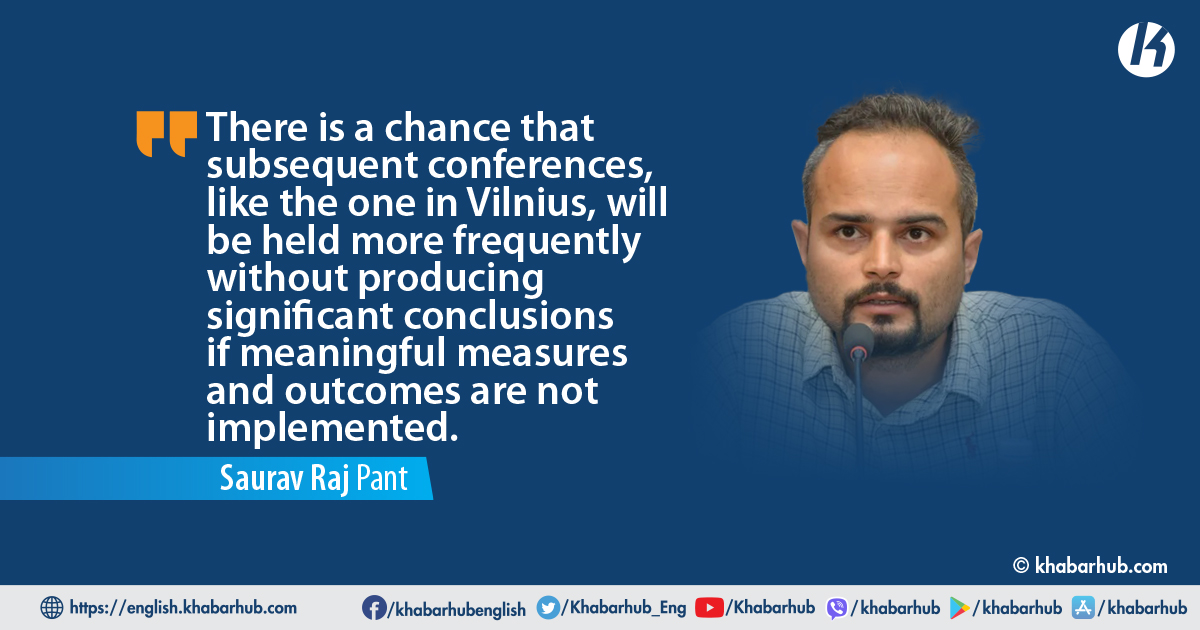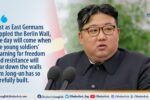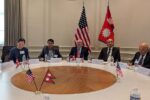The NATO Vilnius Summit Communiqué 2023 is a reflection of the member states’ united resolve to bolster collective defense, deterrent capabilities, and tackle new security challenges.
This in-depth examination of the communiqué’s major statements covers a range of significant topics, including the Ukraine crisis, fighting terrorism, regional difficulties, and the changing nature of security, with an emphasis on China’s actions.
The communiqué emphasizes NATO’s commitment to upholding the transatlantic relationship, safeguarding the security of member nations, and fostering world stability.
Communiqué’s key points
The opening paragraph of the communiqué restates the NATO members’ unity, cohesiveness, and solidarity as well as the ongoing transatlantic tie.
The communiqué strongly condemns Russia’s unlawful action against Ukraine and its breaches of international law with regard to the Ukraine conflict.
In addition to reiterating NATO’s commitment to the Open Door policy and Ukraine’s potential membership, it also emphasizes the Alliance’s support for Ukraine’s right to self-defense. NATO declares its commitment to continuing to offer political and practical assistance to Ukraine in resolving the current conflict.
NATO recognizes the dangers that Russia’s deeds and strategic intimidation represent. The communiqué stresses the significance of identifying and properly addressing these difficulties.
It denounces Russia for breaking its agreements and promises related to weapons control, particularly its decision to leave the Treaty on Conventional Armed Forces in Europe.
The development of space-based capabilities, especially the defense of space assets and collaboration with allies in this field, should be a top priority for NATO.
The communiqué reaffirms NATO’s opposition to terrorism in all its manifestations.
It emphasizes the dedication to fighting terrorism and tackling the problems in the Sahel, North Africa, and Middle East regions, as well as Russia’s involvement in these regions. NATO is aware of the intricate security dynamics in these areas and the necessity for a comprehensive strategy to preserve stability.
The communiqué acknowledges concerns on the People’s Republic of China’s ambitions, coercive practices, and hybrid activities.
The communiqué underscores the need to track China’s activities and take appropriate action, however no particular actions are mentioned.
NATO emphasizes the significance of preserving a technology edge while guaranteeing responsible use of new and disruptive technologies as it acknowledges the changing security landscape affected by China’s actions.
The communiqué underlines the dedication of NATO member states to defense spending, upgrading of technology, and interoperability.
It highlights the significance of a proficient defense industry and robust supply chains.
The summit endorses a Digital Transformation Implementation Strategy to improve interoperability and decision-making within NATO, recognizing the importance of digital technology.
Limitations of the Communiqué
Thorough examination exposes certain shortcomings in the communiqué. Given the absence of a thorough and effective plan to deal with the current issue, the way the Ukraine situation is being handled is judged unsatisfactory.
There are no concrete actions or measures to stop Russian aggression and safeguard Ukraine’s territorial integrity in the declaration of support for Ukraine’s future NATO membership.
Similar to this, the communiqué’s discussion of China’s growing influence is viewed as cursory since it lacks a thorough evaluation of the strategic consequences and detailed plans to deal with China’s difficulties.
The absence of a timeline from NATO for Ukraine’s membership has been attacked by Ukrainian President Volodymyr Zelenskyy as being “absurd.”
There is no agreement among the members of the alliance about Ukraine’s admission, despite the fact that NATO leaders agreed to eliminate the demand for a membership action plan and stated their wish for Ukraine to join. Zelenskyy expressed his displeasure, saying that it appears that there is a lack of willingness to ask Ukraine to join NATO or to admit it as a member, with ambiguous terms and no set deadline.
The communiqué also offers just a cursory overview of the status of defense investment and lacks comprehensive strategies for resilience and non-military instruments.
It does not give full evaluations of the developing dangers in cyber security and space, nor does it offer solutions that are all-inclusive.
Negotiation power of Erdogan
Turkish President Erdogan has skillfully pushed his political agenda by taking use of Turkey’s geopolitical position, notably its control over the Bosporus Strait and its leverage in the ongoing Russian-Ukrainian war.
Erdogan has worked to further Turkey’s interests, particularly its desire to join the EU, by employing a diplomatic approach that mixes pressure and rewards.
Erdogan has sought to work with NATO and demonstrate his capacity to influence results by presenting Turkey as a crucial actor in resolving the situation and taking use of its geopolitical location. On the one hand, he has expressed support for Ukraine and opposition to Russian activities, enhancing Turkey’s role in NATO and supporting its goals. Erdogan has simultaneously used a carrot-and-stick strategy to forward Turkey’s EU membership application, taking use of the possible support for Sweden’s NATO membership as leverage.
Erdogan’s deliberate action demonstrates his determination to collaborate closely with the EU, align Turkey’s ambitions with those of the West, and pursue the linked goals of NATO and EU membership.
Reform agenda for NATO
In the future, NATO must address the weaknesses mentioned in the communiqué and improve how it approaches important issues.
NATO should create a thorough and effective plan for the Ukraine issue that details concrete steps and procedures to thwart Russian aggression and safeguard Ukraine’s territorial integrity.
To successfully fight Russian threats, this entails boosting military assistance, boosting the capability of the Ukrainian armed forces, and putting regional security strategies into action.
NATO should do a thorough analysis of the strategic ramifications and formulate a clear policy that strikes a balance between engagement and deterrence in order to meet China’s growing influence.
The goals of this policy should be to contain China’s aspirations and reduce possible hazards to NATO member states by diplomatic, economic, and security measures.
NATO has to implement procedures to make sure that member states reach their defense expenditure goals and prioritize a comprehensive evaluation of the status of defense investment.
Regular monitoring, reporting, and peer pressure should all be part of this to promote compliance.
In order to guarantee that technology modernization initiatives properly address new security risks and improve interoperability among member countries, NATO should also strengthen its study of these initiatives.
NATO should create comprehensive plans and workable tactics to improve non-military capabilities and resilience.
In order to combat hybrid threats and misinformation tactics, this entails strengthening strategic communication skills.
NATO should also put an emphasis on making member states more resilient to possible assaults on vital infrastructure and allocate funds to initiatives that address new security problems.
Recognizing that the global political adventurism undertaken by Putin and the West—driven by their respective perceptions of defending their security and national interests—should not come at the price of the global economy is essential.
A more thorough strategy is required due to the communiqué’s scant focus to space and cyber security.
The development of space-based capabilities, especially the defense of space assets and collaboration with allies in this field, should be a top priority for NATO.
In order to successfully combat cyber threats, NATO must also expand its cyber security measures, including information sharing, cooperative defensive systems, and capacity-building initiatives.
In addition to this, Erdogan’s objectives and the long-term effects of his strategies, NATO and EU member states should have a critical conversation about Turkey’s use of its crucial position in international politics.
This entails assessing how Erdogan’s actions line up with NATO’s principles and ideals as well as keeping track of how they affect common goals and regional stability.
To address any problems and ensure a positive connection, it is essential to keep lines of communication open and take diplomatic action.
Way Forward
First and foremost, it is essential for Euro-Atlantic cooperation to understand that Ukraine will not be able to resolve its conflict by itself if just military, logistical, and financial help are given.
Instead, a more thorough strategy is required. It is crucial that the West, lead by the United States, have a conversation with both Putin and Zelenskyy in this respect.
The continuing conflict may be permanently resolved with the use of this diplomatic strategy. Zelenskyy must also abandon his nationalist viewpoint and adopt a more inclusive and cooperative style of thinking.
He may support the diplomatic attempts to settle the dispute by looking beyond limited nationalistic views.
Without these initiatives, the cycle of summits and conferences may continue, but the fundamental problems will not be tackled, prolonging the pain of those impacted and impeding the path to peace and stability.
Recognizing that the global political adventurism undertaken by Putin and the West—driven by their respective perceptions of defending their security and national interests—should not come at the price of the global economy is essential.
Poorer nations are disproportionately affected negatively by such acts, and growing economies bear the weight of greater inflation in basic commodities like food and energy.
It is crucial for Euro-Atlantic cooperation to engage in communication with important players, such as Putin and Zelenskyy, rather than depending simply on military support.
A more lasting solution to the dispute can be reached by eschewing nationalist tactics and adopting cooperative ones.
Finally, there is a chance that subsequent conferences, like the one in Vilnius, will be held more frequently without producing significant conclusions if meaningful measures and outcomes are not implemented.
Moving past symbolic actions and hyperbole in favor of practical answers that deal with the conflict’s underlying roots is crucial.
This necessitates a sincere commitment from all parties concerned to participate in fruitful discussion, give diplomacy priority, and strive towards a long-term solution.
Without these initiatives, the cycle of summits and conferences may continue, but the fundamental problems will not be tackled, prolonging the pain of those impacted and impeding the path to peace and stability.
(Note: To fix grammatical errors , sentence structure and adjust clarity, the writer has opted help from ChatGPT and other AI platforms. The writer, hereby, declares that the idea is original of the writer itself.)









Comment